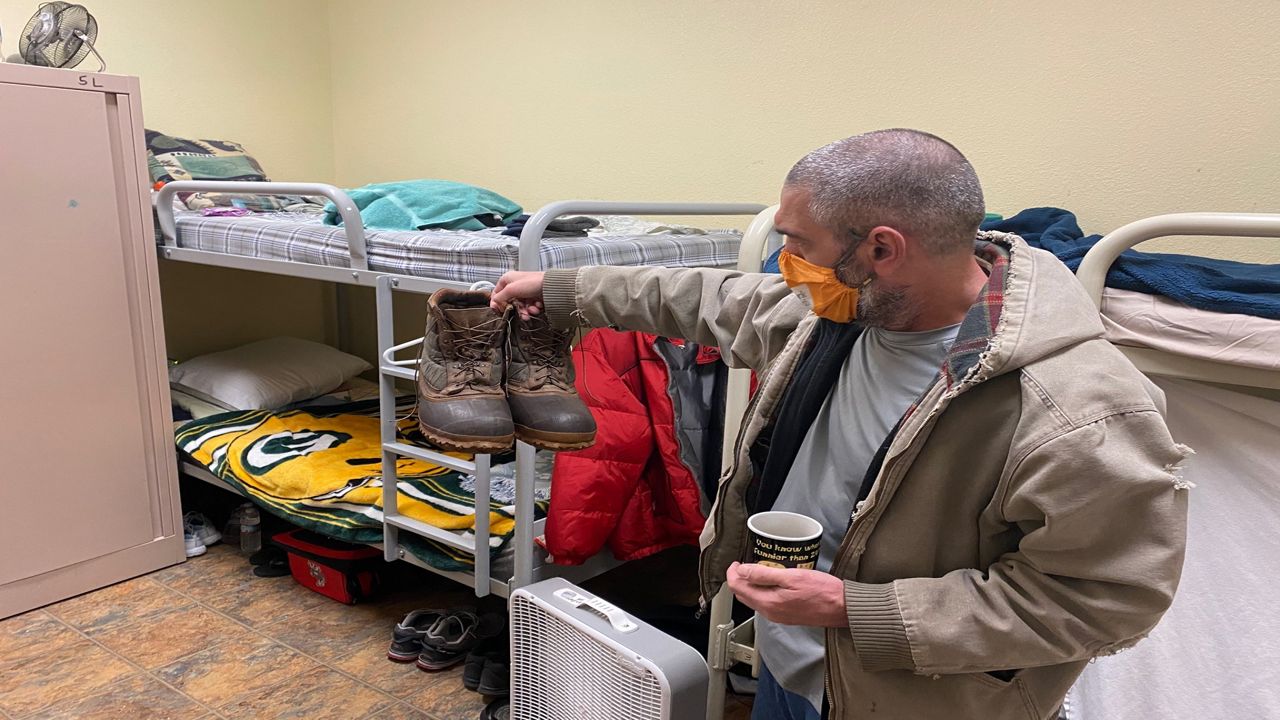APPLETON, Wis. – It’s another dreary, steel-gray December day but Thomas is feeling the sunshine running through his veins.
It’s somewhere around 3:30 a.m. when he awakes in his top bunk, and he remains there for the next 90 minutes or so just thinking, pretty much about anything, and everything. By 5 a.m. he’s up and out of his room, downstairs in the kitchen, making sure the coffee is made, cleaning tables and doing dishes because there is a shortage of bowls on the premises and he wants to make sure everyone who wants one for breakfast, has one. He pulls things out of the refrigerator that need to be consumed before they go bad, then puts away any donations that have come in.
None of this is required of Thomas; he does it because he wants to.
A couple of hours later he is playing tour guide, telling the visitor how he plans to clean the rugs in the community room, then stops at the shower room to pick up used towels left behind. Once finished, he moves outside, coffee can in hand, picking up cigarette butts that have accumulated in the front of the building.
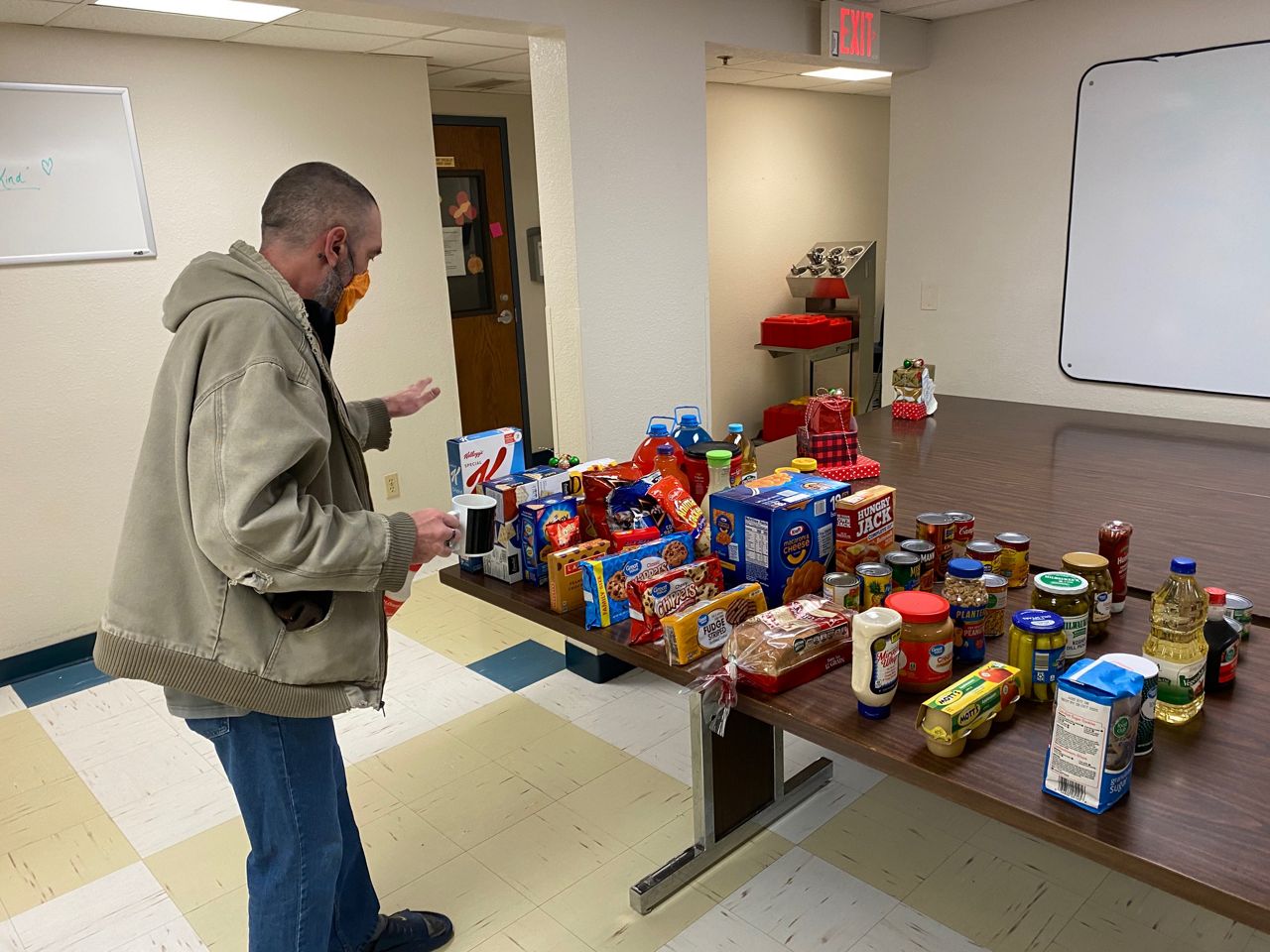
Thomas has been equipped with the helping gene, and he’s happy to put it to use. This day, like several days the previous three weeks, is a good day.
“I’m hoping to do better as it goes on,’’ he says, “because my past ain’t very much to brag about.’’
****
Thomas H., 51, is a resident of Pillars, an emergency shelter. He is homeless. He lives in a small room with five other men. A small locker holds all his worldly possessions.
Life has not been easy, mostly the result of a series of bad decisions. He has spent most of his adult life behind bars.
“I’m institutionalized,’’ he says. “I feel better being in jail or the hospital, behind locked doors. It’s way more comfortable for me. Because, generally, except from 2009 until 2016, that was really only the stretch I’ve had (as a free man), and three years of that I was in depression anyway, so …. That’s the longest stretch I’ve had out of prison.”
He has suffered from anxiety and depression most of his life, and it certainly has played a role in his poor decision-making. When he first arrived at Pillars, he’d lie in his bed most of the day, leaving only to eat and use the restroom. But after Pillars helped him connect with medical personnel, he is now taking medication that has allowed him to function on a daily basis.
“A lot of times, meds make a whole world of difference,’’ said Hannah Notle, Thomas’ caseworker at Pillars.
“People are not bad people when they come here, and I think that’s a bad stigma the world has. People need a second chance and there are good people who have made bad choices and everybody needs that help to put people on the right path.
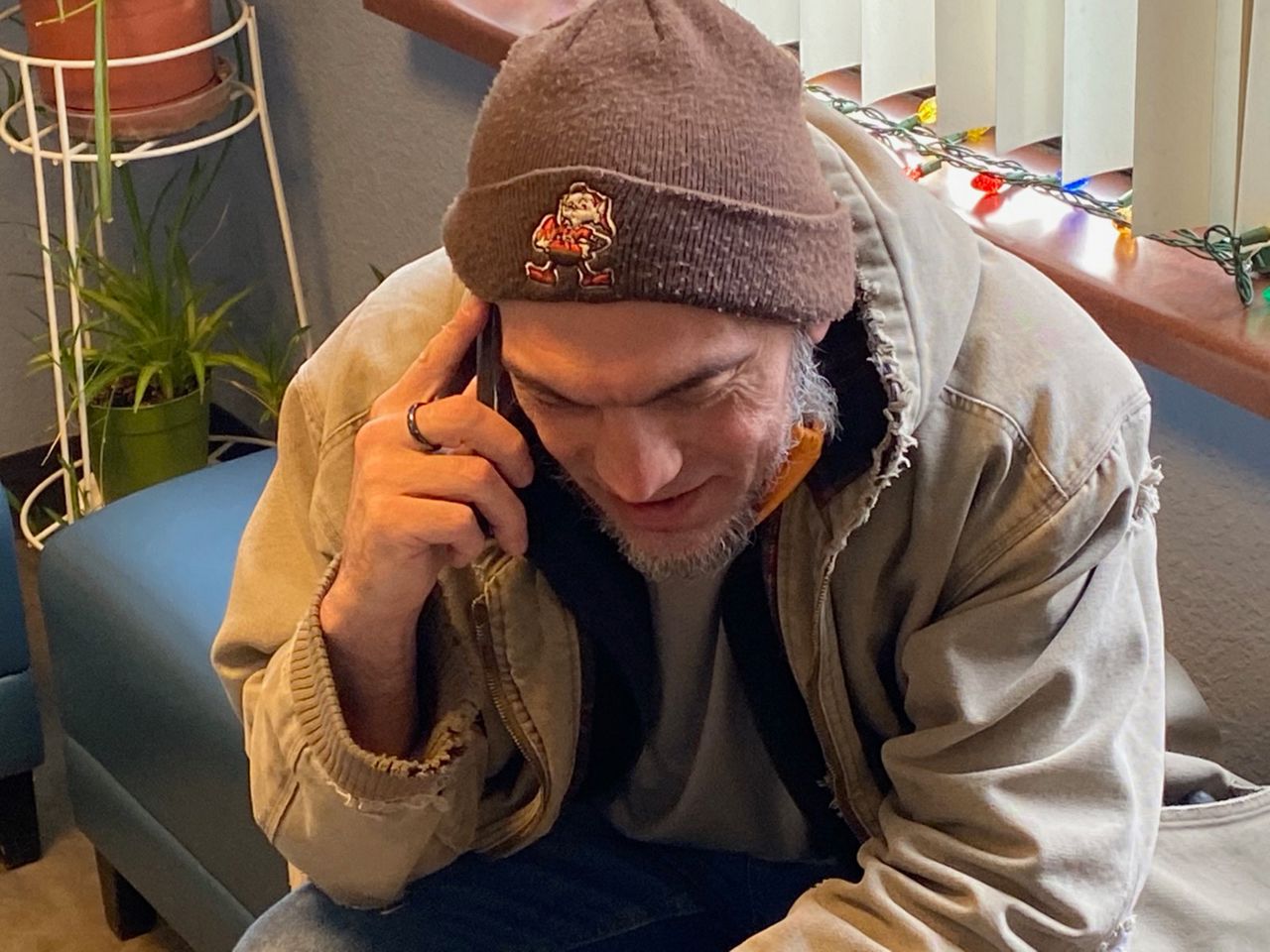
“[Thomas is] such a good person and he works really hard and he will go above and beyond to help out now that he’s medicated. It’s like night and day from before. He’s really come a long way. He’s worked hard at it though, for sure.’’
All residents who come to Pillars are evaluated to determine what their needs are. Getting housing and employment are the top priorities, but everyone’s situation is unique. A two-month stay would be the perfect-world scenario, with 30-day case plans put in place to reach those goals.
“Typically we would meet with clients, see where they are at, see what they want us to help with and then meet them halfway with what we need to help them, per our policies,’’ said Hannah.
“However, we understand people are not … people are messy. We are in a really messy field and it’s not always going to work out in our time frame. It’s kind of give and take.”
The road for Thomas is clearly uphill. His long criminal history makes it extremely difficult for landlords and employers to even see a path to give him a chance. People like Hannah, and others at Pillars, will advocate for Thomas, but is up to the client to make it happen.
“Almost the smaller landlord, the more ma and pa landlords, make it easier because they are not tied up with policies as much,’’ said Hannah. “Employers, probably the same thing as a lot of places have background checks that you need to do, so it makes it more difficult.
“But it does not in any way make it impossible. But you would probably have to prepare yourself for 20 'Nos' before you’d get a 'Yes,' depending on what kind of job you’re looking for. So we, as case managers, do the best we can to be the cheerleader, be the supporter and be the resource connectors. It’s a lot of shoes.”
****
Thomas grew up on a farm in Freedom, the youngest of four children.
“I hated everything but bailing hay,’’ he said. “I was the youngest; I got all the (expletive) jobs.”
Thomas had yet to graduate high school when he was first introduced to the Wisconsin Department of Corrections system. He spent 9 months at Lincoln Hills, a secured juvenile correctional facility, for breaking into cars and other burglaries.
Some he did by himself; some with friends.
“I don’t really have an explanation,’’ he said when asked how he got involved in illegal activities. “As many years ago as it’s been, I really haven’t come up with a good idea yet.”
He earned his GED at Lincoln Hills, got out in September of 1987, but was back in jail by February of 1988 for two more burglaries. And so it began.
Selling drugs, stealing trucks, resisting arrest; it became a never-ending revolving door. He lists off the correctional institutions in which he’s been incarcerated like someone else may name state parks they’ve visited. He names 13, several of which he’s been to more than once.
“I usually forget one,’’ he said. “That might be all.”
In 2011 his depression nearly took him down. He walked to the top floor of a public parking ramp in Appleton near the city bus station with the intent of ending his life.
“I wanted to jump off,’’ he said; “just didn’t.”
Things never got better for Thomas; it was just more of the same. In 2016, he was driving his truck with a stolen snowmobile trailer behind him. It was January, at night, and he fell asleep at the wheel and drove into a ditch. Someone picked him up and drove him to Marion. It was now around 3 a.m. He walked by a trailer park and saw a truck outside, nowhere near a trailer. He pulled on the door handle in hopes he could get inside and stay warm. It was open, and the keys were in the ignition.
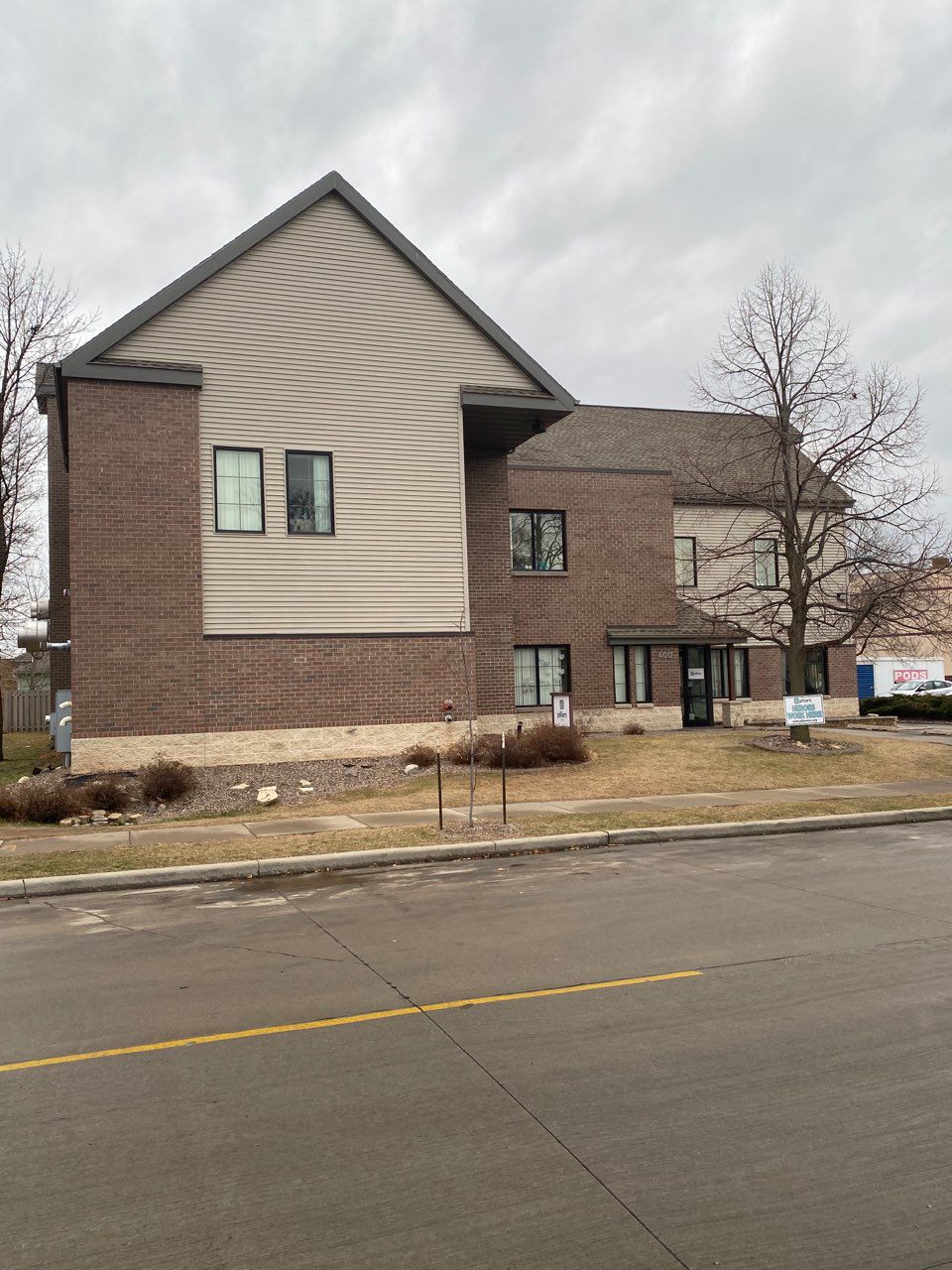
Twenty-four hours later, he was in a chase with the police. He hit a snowbank and the truck was on just two wheels going around the corner and the chase was called off. He ditched the truck a few blocks later, got out, walked to an apartment complex and found another truck and peeked inside. There were gloves and a ski mask. Again, the door was open and he took the items to stay warm. He was walking away before he stopped and doubled back. He opened the door again and pulled down the visor. There was a key. Four days later he was in another chase with police. This time he was caught. His sentence was 40 months.
In March of 2019, he went into a temporary living arrangement through Attic Correctional Services. He had been issued an ankle bracelet but in less than two months he cut it off and left. A couple of days later, he checked into a hospital for being suicidal. He left two days later. He went to a friend’s house; did nothing but lie around the house for nearly two months before his friend kicked him out. He left without taking his phone or his glasses, just the clothes on his back. He walked straight to the hospital and checked himself back in. About six days later he was released, called another friend who took him in and called Pillars for three straight days before there was an opening.
“I have no qualms or regrets about my incarcerations or about (selling) marijuana,’’ he said. “That’s the way life is; if you’re going to take the chance of selling it, you’re taking the chance of getting caught.
“I try not to be a bad person. I mean, this last time was kind of a fluke, stealing the pickup trucks. … It wasn’t like I set out to steal a pickup truck; it was just kind of happenstance that it happened that way. I mean, it wasn’t right. The stuff I did when I was 18; that was an awful long time ago. To still hold that against me … if you want to you’re going to, whether I say the right words or not pretty much.”
****
Thomas wants it all, and by all, it is what the majority of the population takes for granted - a job, a place to live and call their own and a good relationship with his family. But right now, he’s 0-for-3.
He hopes to be able to get into COTS, another transitional housing facility that offers more freedom and independence than he currently has. He would like to find a job as a forklift operator. And he would like to reestablish a connection with his brothers, sister and mother.
“That’s generally why I’m not in contact with them because I’m just feeling where I’m not good enough,’’ said Thomas.
He says he owes both of his brother’s money. It weighs on his mind and he wants to pay them back but has barely spoken to them over the past several years. His mother is in poor health but has no idea where she is. His sister has stayed in touch with him the most.
“I know my sister loves me, put it that way,’’ he said. “My ma, it’s kind of iffy, because I keep going to prison.”
Yet he very much wants to see her because he senses her time is short.
“The first time I went over there after I got out of prison (in 2019), my best friend Jerry was driving and he had the window down and she came to the garage door to let me in and I don’t know what she said to Jerry, but he heard it and I didn’t. But it didn’t sound like she was happy to see me. I had had no contact with any family members the whole three (plus) years I was in prison. I was too embarrassed to write my ma, and that was the only address I knew.”
****
Based solely on a piece of paper, most people would not give Thomas a second look, much less a second chance.
But to meet Thomas – if only for a few hours - is to meet someone who is affable, has a good sense of humor, is kind, sociable, helpful, and takes ownership of his multiple failures.
He now understands the importance of staying on his medication, as he was in this position before in 2015, felt better, but stopped taking his meds and ended up back in prison six months later.
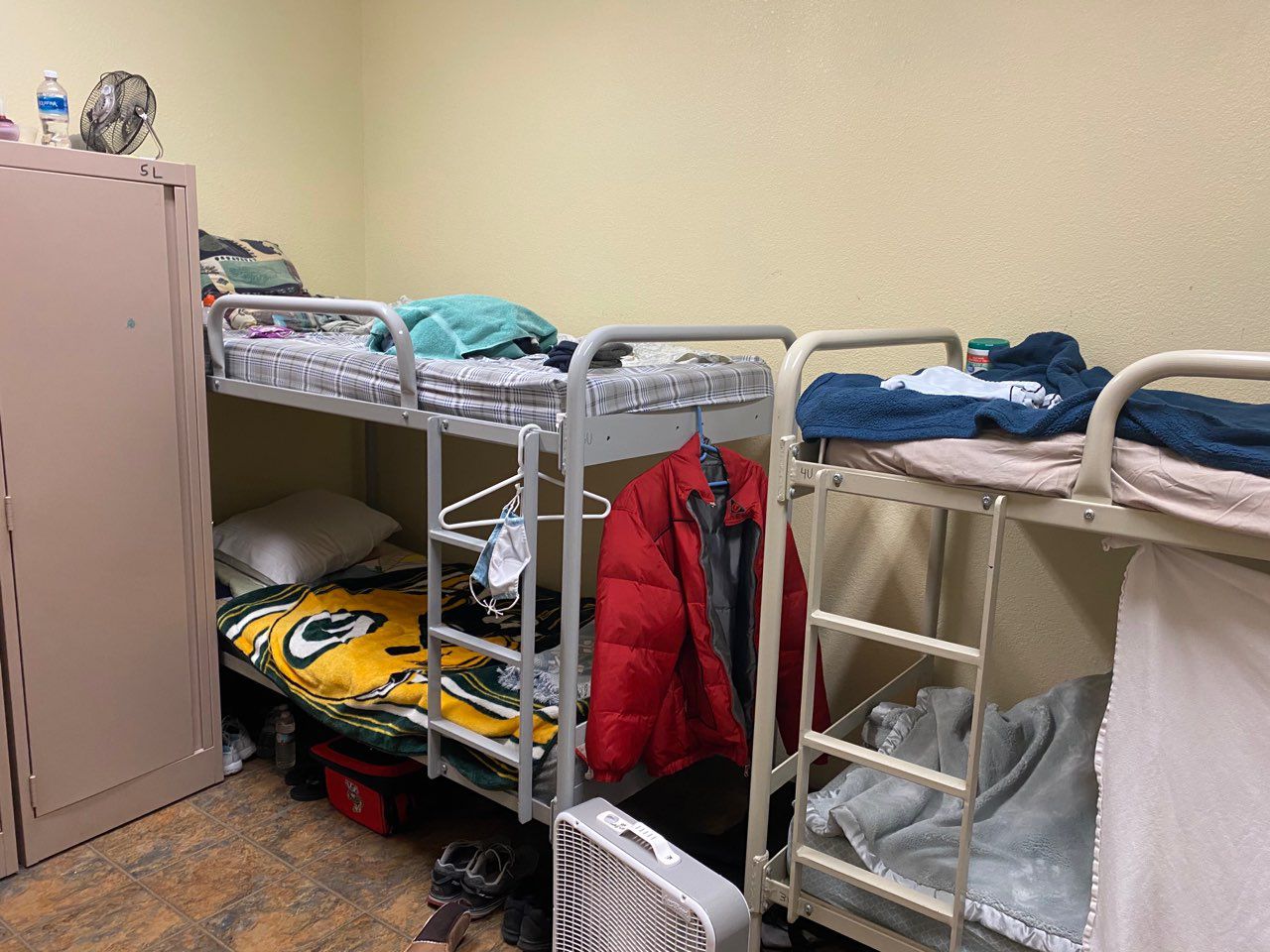
Hannah knows judgments are easily passed, especially when it comes to the homeless. And the narrative is hard to change.
“I think taking the time to either volunteer or work in a setting like this, I think it’s something that will open a lot of eyes,’’ she said. “It’s tough, but it’s really needed.”
When the topic comes back to Thomas, she is ever hopeful. But she is hesitant to offer any predictions about his future, as she fully recognizes the difficulties of how a past affects the present.
“If anybody who is incarcerated that long and they would introduce themselves and that is the only fact that they share, that they’ve been incarcerated, a lot of people would judge him or judge that person right off the bat,’’ said Hannah. “I think that there is a lot of stigma that comes with that.
“But if you would take an hour to get to know him, he is an amazing person and they would have written him off if they didn’t give him a chance to see who he really was. He’s not a criminal; he’s done crimes and he’s paid the price for it. He knows that and understands that. I think it would be unfair and wrong to judge him just solely off of that because there’s a whole person they’d be missing otherwise.’’
For the first time in years, Thomas is having a string of good days. He is smiling, for he knows he’s trying, and for him, that is where it starts. It feels good, like sunshine running through your veins.



